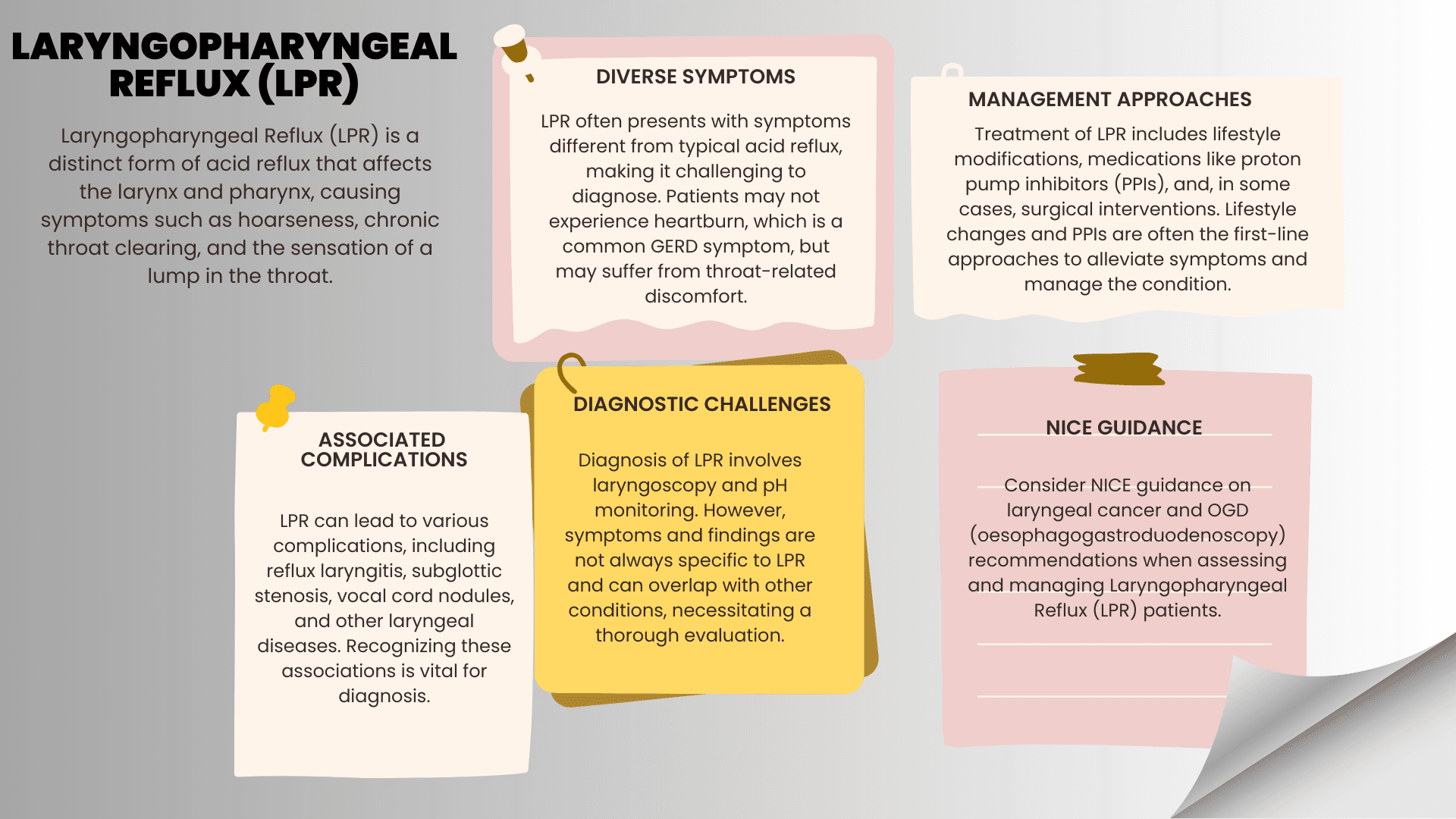Download A4Medicine Mobile App
Empower Your RCGP AKT Journey: Master the MCQs with Us!

Laryngopharyngeal reflux (LPR) is a unique medical condition that involves the regurgitation of stomach contents into the larynx and pharynx, leading to a distinct set of symptoms and challenges in diagnosis and management. Unlike typical acid reflux, LPR often presents with symptoms such as hoarseness, chronic throat clearing, and a sensation of a lump in the throat, making it essential for healthcare professionals to understand its characteristics and treatment approaches.
In this educational material, we explore LPR covering its definition, symptoms, diagnostic methods, associated complications, and management strategies, providing valuable insights for clinicians and healthcare providers.
| Aspect | Description |
|---|---|
| Definition | Laryngopharyngeal reflux (LPR) involves the retrograde flow of stomach content into the larynx and pharynx, leading to contact with the upper aerodigestive tract. It is distinct from gastroesophageal reflux disease (GERD), which affects the oesophagus. |
| Symptoms | LPR patients may experience various symptoms, including hoarseness, a sensation of a lump in the throat (Globus sensation), chronic throat clearing, and coughing. Hoarseness often worsens in the morning but improves throughout the day. |
| Risk Factors | Unlike GERD, LPR is not associated with obesity. Other risk factors and associations may include smoking and the presence of hiatal hernia. These factors can contribute to the development... |
Try our Free Plan to get the full article.